Why you shouldn’t keep these foods in the store cupboard
Foods for your fridge
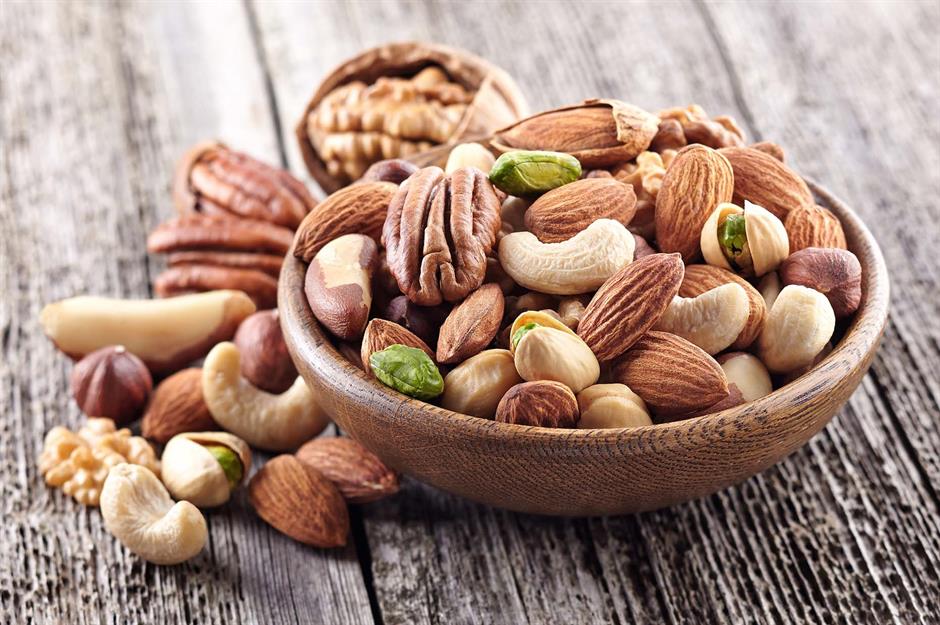
It's a given that meat, fish and dairy should be kept in the fridge, and that tinned produce should be kept in cupboards – but you might be surprised to learn that there are a few other everyday ingredients you've been storing incorrectly. To help you figure out what should be kept where, we've rounded up 24 foods that you should move out of the pantry or store cupboard and into the refrigerator. Stored chilled, they'll stay fresh and bacteria-free for much longer.
Click or scroll through our gallery to discover the foods that you'd be better off keeping in the fridge from now on.
Apples
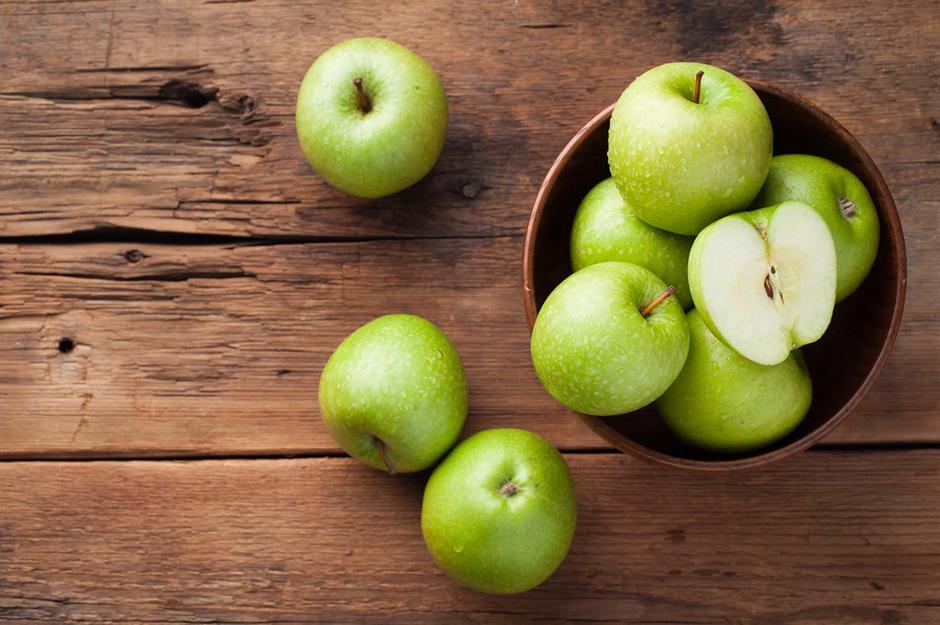
Unlike most other fruits, apples actually benefit from refrigeration. This is because apples release ethylene gas, which makes other nearby fruits and vegetables ripen faster. If you keep your apples in the fridge, it will slow down the production of ethylene, making them (and your other produce) last longer. Try to keep your apples away from other fruits and vegetables in the fridge, and be sure to cover them with a damp sheet of kitchen roll (or store them in a plastic bag with holes) to keep them at their best.
Avocados
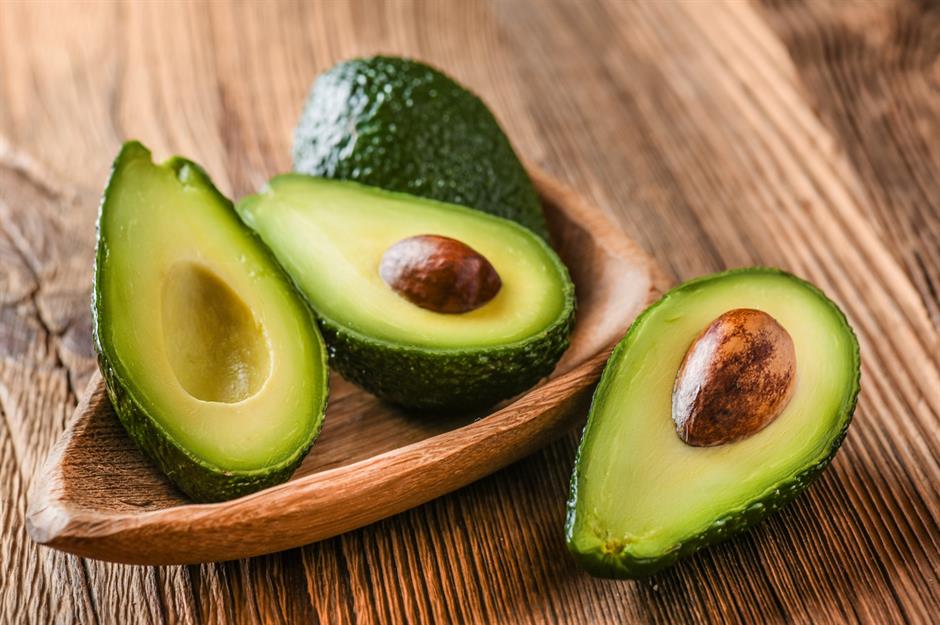
Where you store your avocados really depends on how ripe they are. If they're really firm when you give them a squeeze, leave them out on the kitchen counter to ripen. When they're soft, pop them in the fridge to keep them perfect for longer – otherwise, they'll quickly start to go brown and mushy.
Bananas
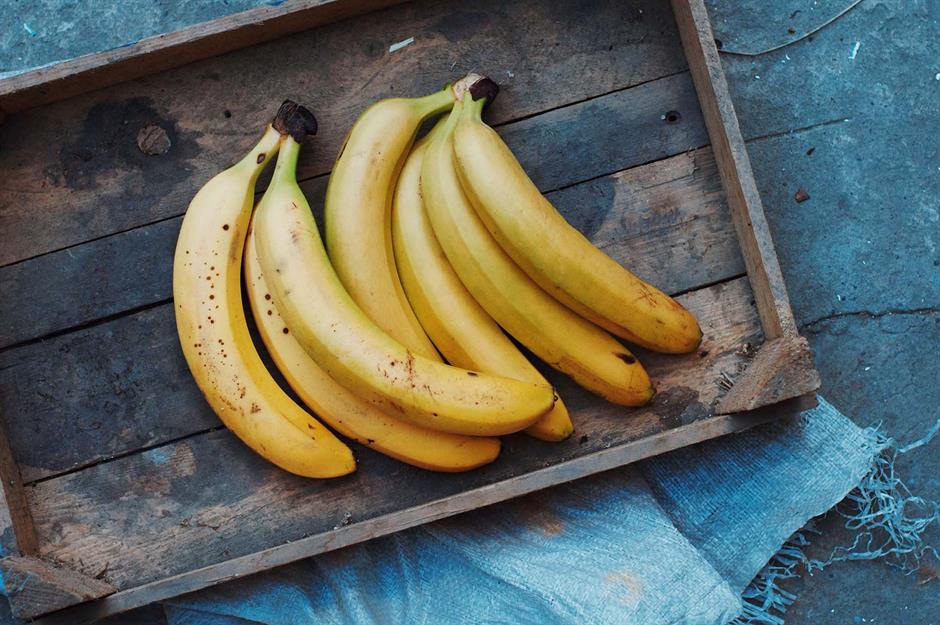
We've all heard that bananas shouldn't be kept in the fridge because it stops the ripening process. This is absolutely true – but once your bananas are perfectly ripe, you can pop them in the fridge to keep them at their best for a couple of days. You'll see the skin continuing to brown, but the flesh inside will stay as soft and delicious as ever.
Bottled lime and lemon juice
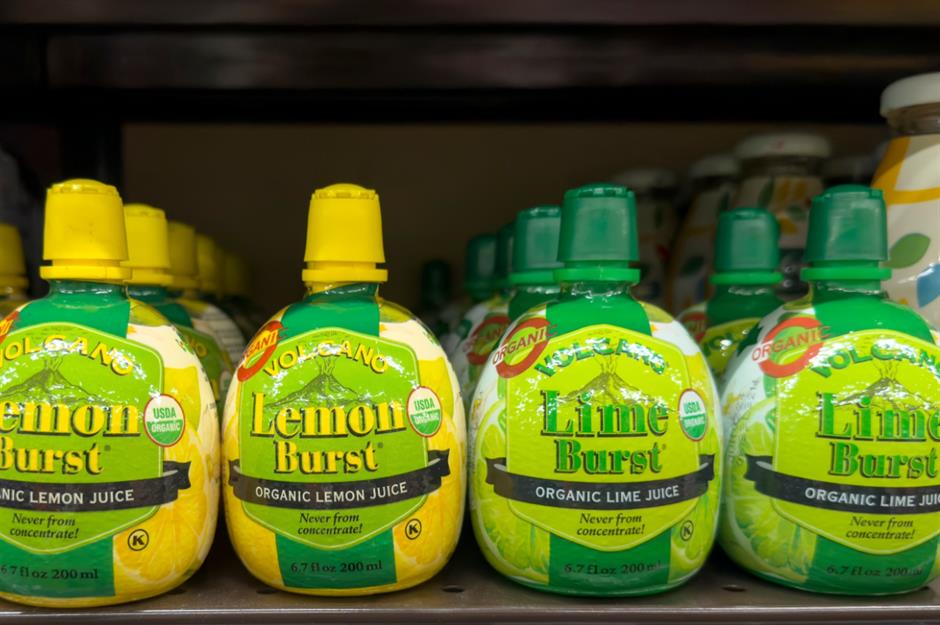
Shop-bought bottled lime and lemon juices need to be kept in the fridge after opening. If left in the cupboard, the flavour can become sourer and more unpleasant over time – and some juices will lose their flavour entirely. Lime juice will also start to turn an unpleasant brown colour if it's not refrigerated and sealed tightly.
Cakes
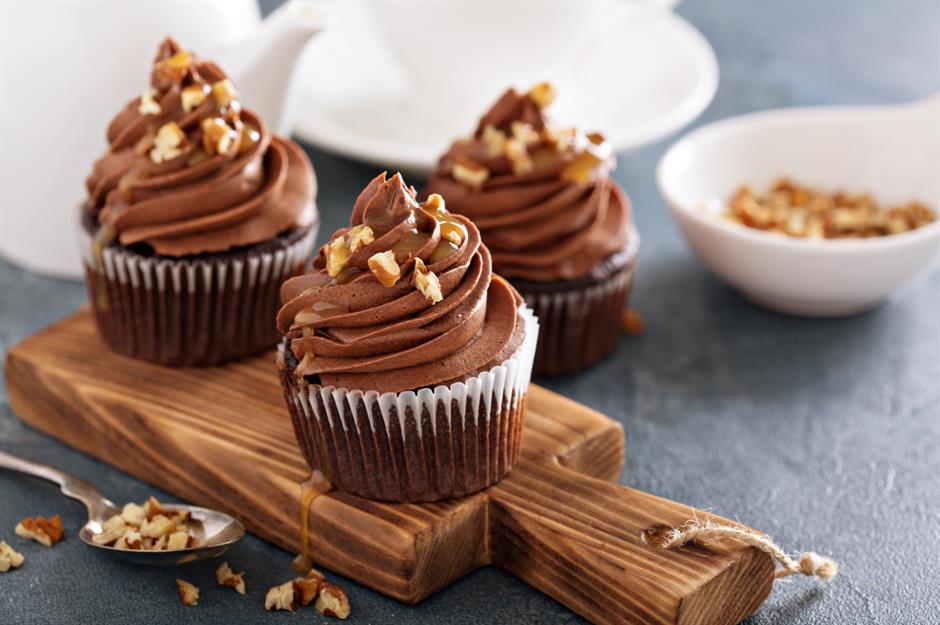
When you have leftover cake, it's hard to know whether to pop it back into its box and put it in the cupboard, or to store it in the fridge. It really depends on the ingredients of the cake in question – anything with cream, custard, fresh fruit or cream cheese should go in the fridge, while standard sponges can stay in the cupboard. You can also freeze cake; it'll keep its flavour and texture until you're ready to eat it.
Chocolate

While chocolate brand Cadbury's say bars should be stored in a 'dry and dark place below 21°C', studies suggest that refrigerating your chocolate is best. Exposure to heat and light can cause oxidation, ruining chocolate's taste and look – but keeping it in the fridge means it'll retain its flavour for longer. Just remember that once opened, you should store your chocolate in an airtight container to prevent it from absorbing strong flavours from other produce.
Chocolate syrup
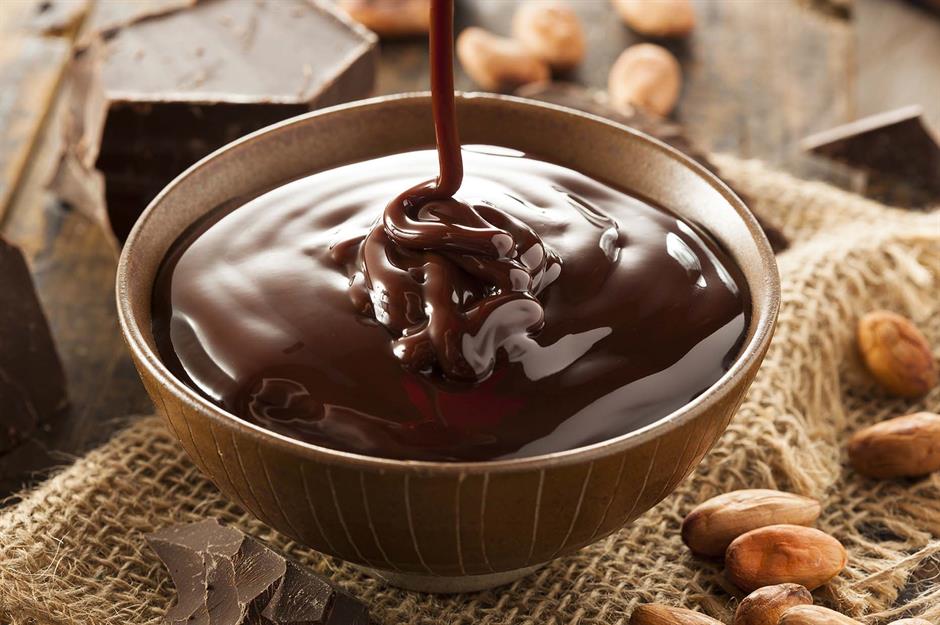
Chocolate syrup's high sugar content will prevent it from spoiling quickly, but it'll keep for much longer if you store it in the fridge after opening. Though it'll take quite a long time to spoil if you leave it unrefrigerated, you might start to notice changes in its flavour, smell and texture. Homemade chocolate syrup and sauce lack preservatives, so should always be kept in the fridge too.
Cold-pressed oils
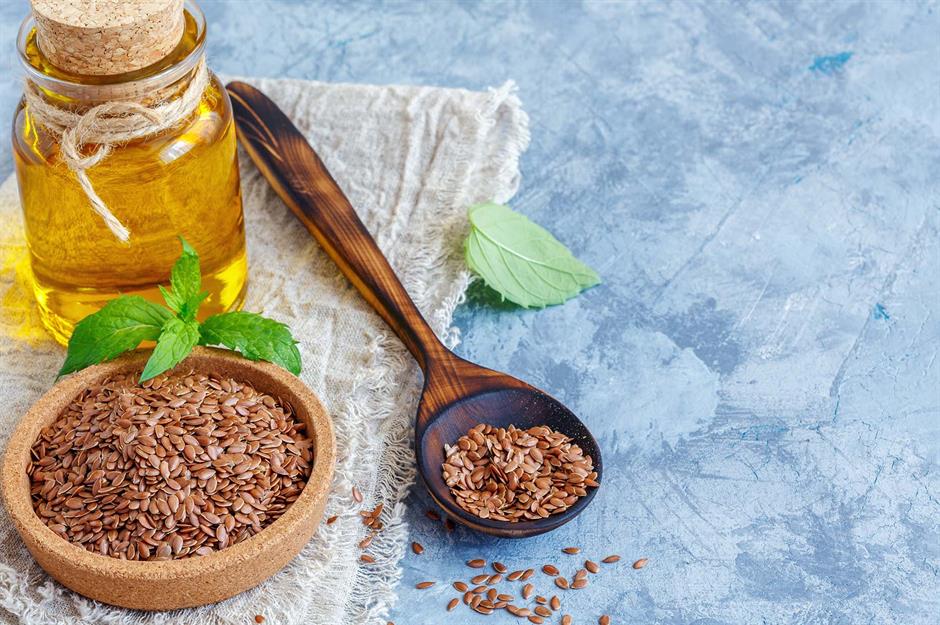
Cold-pressed oils can spoil over time due to oxidisation. Flaxseed oil, for example, contains alpha linolenic acid, which means it's unsaturated (and therefore more unstable). While it doesn't have to be kept in the fridge, refrigeration will certainly prolong its shelf life by slowing down the oxidisation process – retaining its flavour and health benefits for longer.
Corn on the cob

Corn is one vegetable that really must be kept quite cool – this is because its natural sugars start to break down and turn into starch immediately after it's picked. Keeping your corn in the fridge, wrapped tightly in a bag, will prevent it from drying out and going too starchy. If you're not planning on using it within three days, freeze it.
Dates
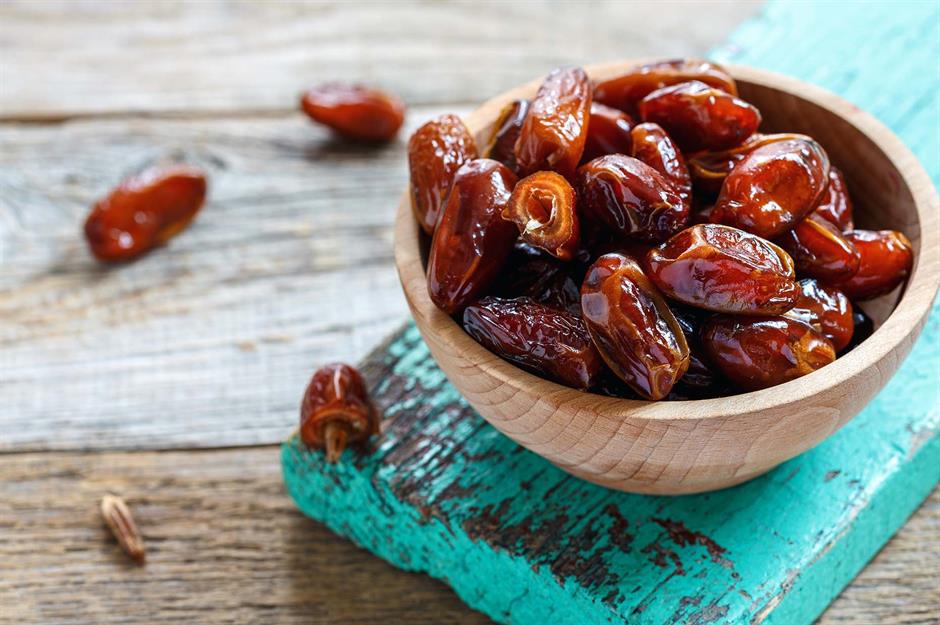
Most dried fruits are fine stored in the cupboard – but dates are better off in the fridge. This is because they're not as dehydrated as other dried fruits like cranberries and apricots. As such, it's best to keep them cool in an airtight container to preserve their flavour. If you store them in a cupboard, they'll dry out and lose their taste.
Eggs
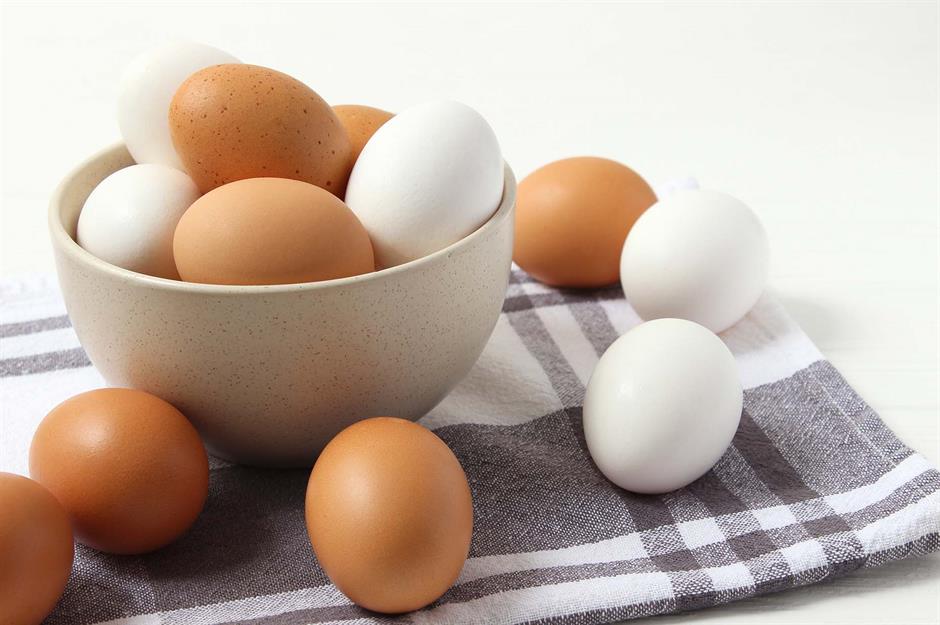
In the US, eggs are sterilised in order to kill bacteria, which also weakens the eggshell. This means they should be kept in the fridge to prevent the bacteria from returning. In most of Europe, disinfecting eggs is illegal; as such, the EU says it's fine to keep eggs out of the fridge in a cool, dry place. However, eggs will generally last longer when stored in the fridge – ideally in their carton and not in the door, where the temperature can fluctuate.
Infused oils
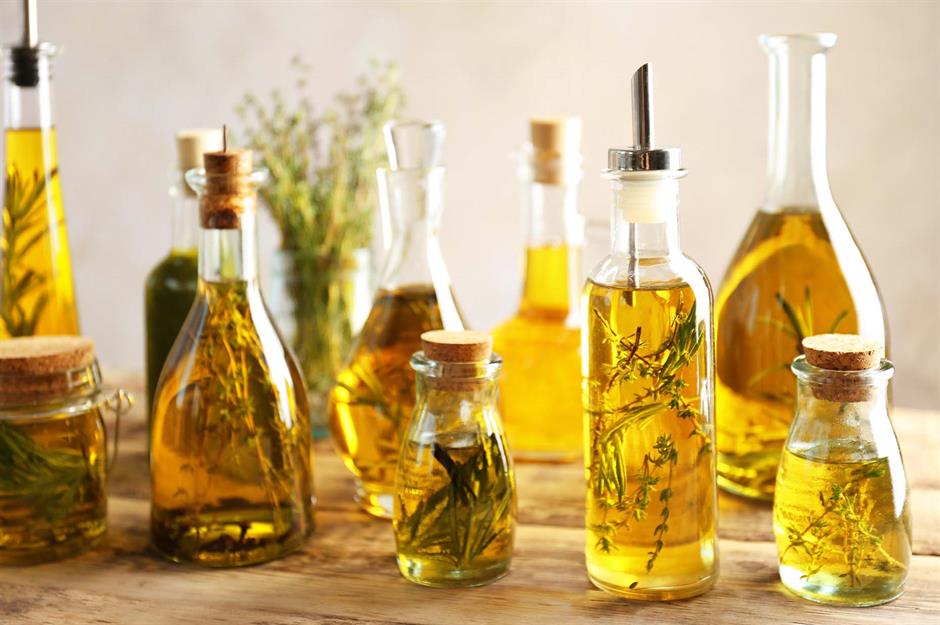
Infused oils are great for injecting extra flavour into marinades and salad dressings, or for drizzling over finished dishes. What's more, they're easy to make at home – though you should be aware that preparing and storing them incorrectly could cause botulism. Any fresh herbs, fruits or vegetables that you add to your oil can contain C. bot (Clostridium botulinum) spores, as well as water, which will allow the bacteria to grow. To stay on the safe side, keep your infused oils refrigerated, and use them within a week.
Jam
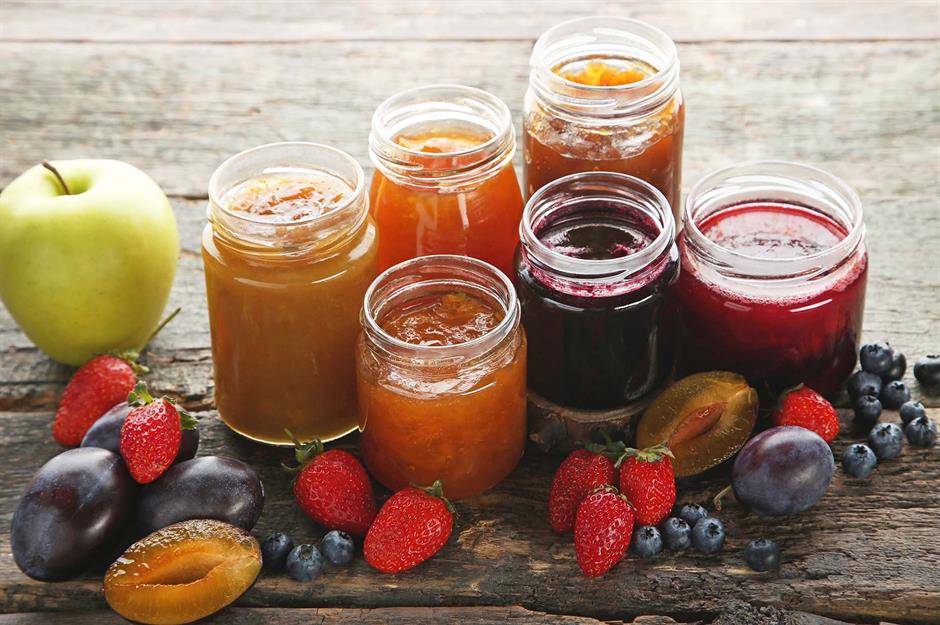
It wouldn't be entirely ridiculous to assume that because of its high sugar content, jam won't spoil after opening if you keep it in the cupboard. However, it's definitely best kept in the fridge. This will help to prevent discolouration, changes in consistency and even loss of flavour – and most importantly, it'll prevent mould from growing. Another top tip: to avoid contaminating your jam with bacteria, don't dip food directly into the jar.
Ketchup
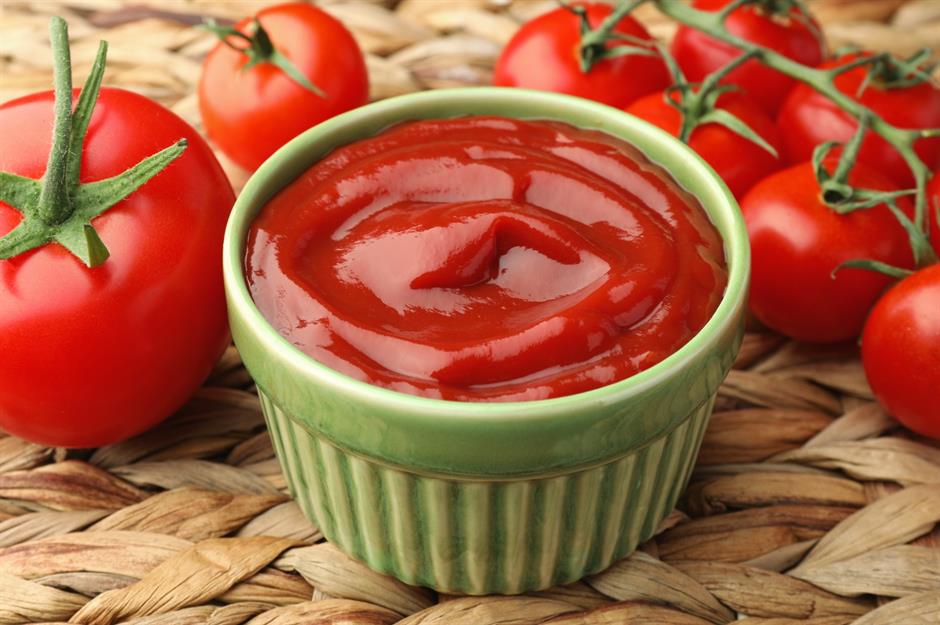
Whether ketchup should be stored in the fridge or not is somewhat of a contentious question. Some people assume that due to ketchup's high vinegar, salt and sugar content, it's safe to store it at room temperature. However, ketchup manufacturer Heinz recommends that 'this product, like any processed food, should be refrigerated after opening' to extend its shelf life. If you're planning on using the sauce up quickly, it can be left out of the fridge, though.
Lemons

If you want your lemons to last for up to four weeks, your best bet is to store them in the fridge. If you leave them in a cupboard – or in a bowl on the kitchen counter – the warmer temperature is likely to cause them to go mouldy within a week.
Mustard
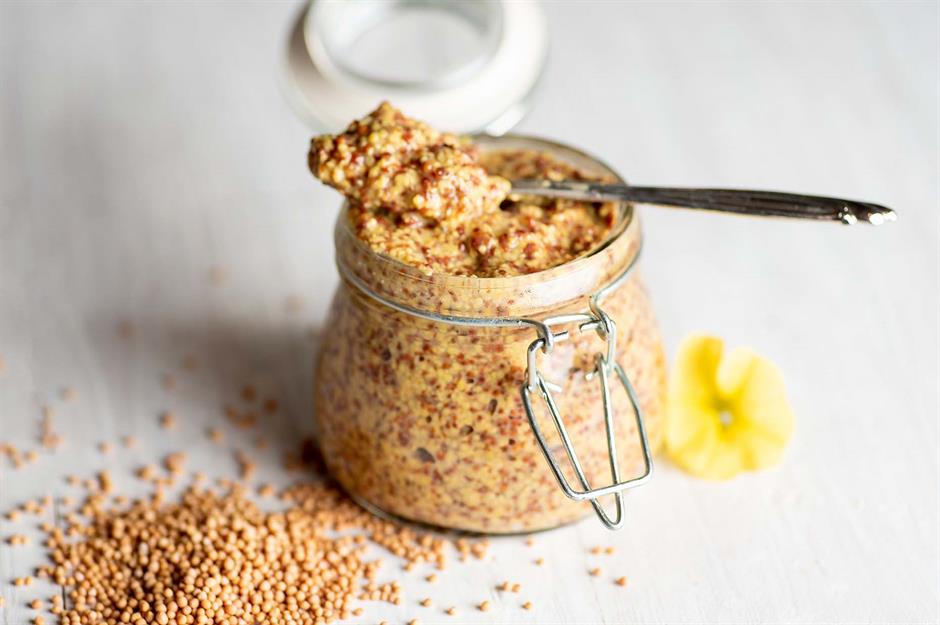
Whether it's Dijon or wholegrain, the preservatives in mustard mean it's completely safe to keep it in your kitchen cupboard after opening. However, you'll significantly prolong the quality of open jars of mustard if you store them in the fridge. The cooler temperature will help to preserve that beautiful colour, and it'll keep its punchy flavour for much longer as well.
Nuts
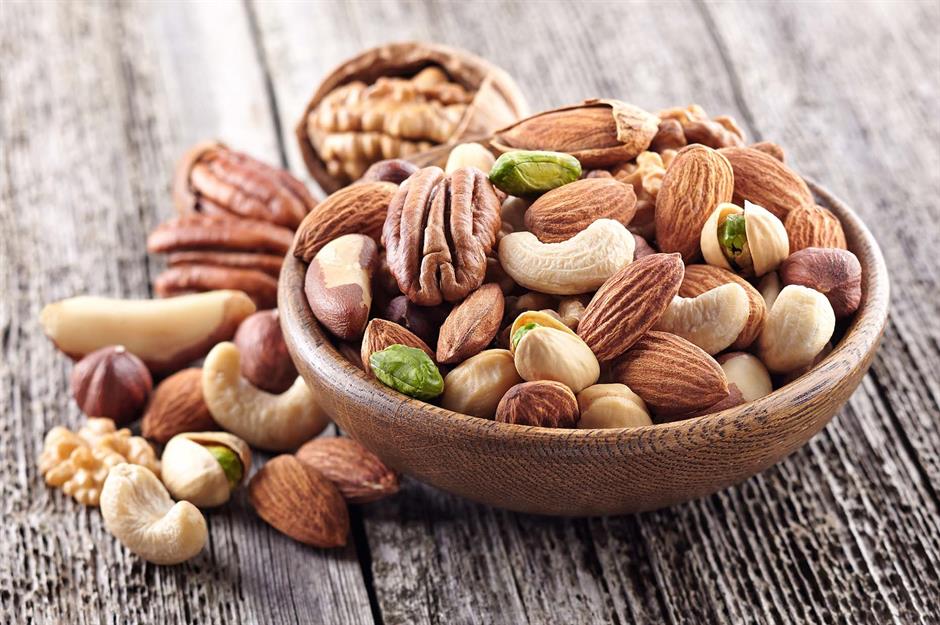
It's a common misconception that nuts should be kept in the cupboard; however, to retain their freshness, they should be stored in the fridge in an airtight container. Nuts contain a high percentage of oil, so warm conditions can cause them to spoil quickly. They'll remain edible if they're stored in a cupboard for up to a month – but if you're planning on keeping them any longer, pour them into an airtight container and pop them in the fridge.
Nut oils
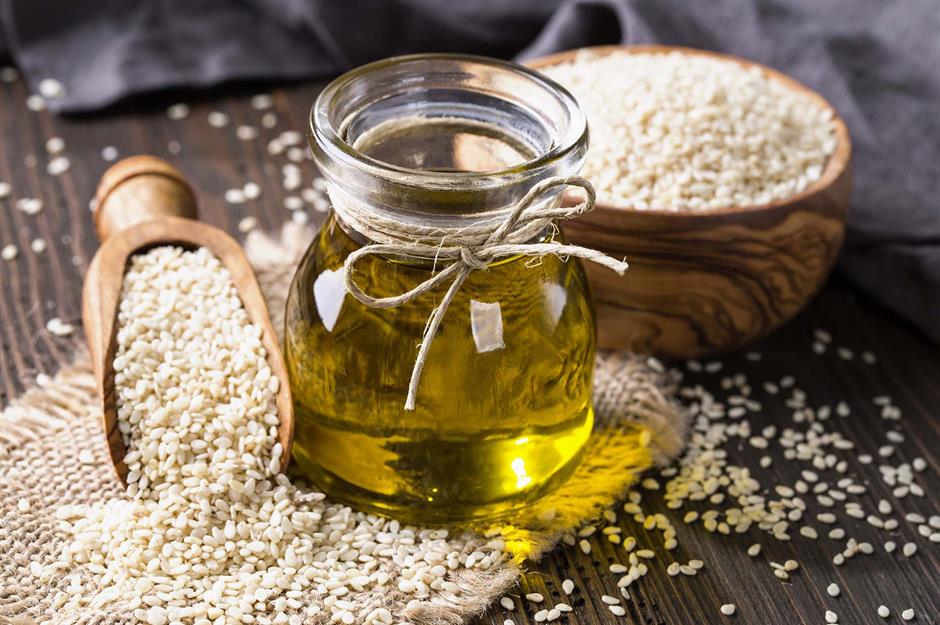
Unrefined nut oils and sesame oils are prone to going rancid and losing their flavour if kept at room temperature. The simple explanation is that nut and seed oils contain polyunsaturated fatty acids, which are susceptible to oxidation. Many will go a bit cloudy when stored in the fridge, so take them out for a few minutes before cooking to bring them back to room temperature.
Peanut butter
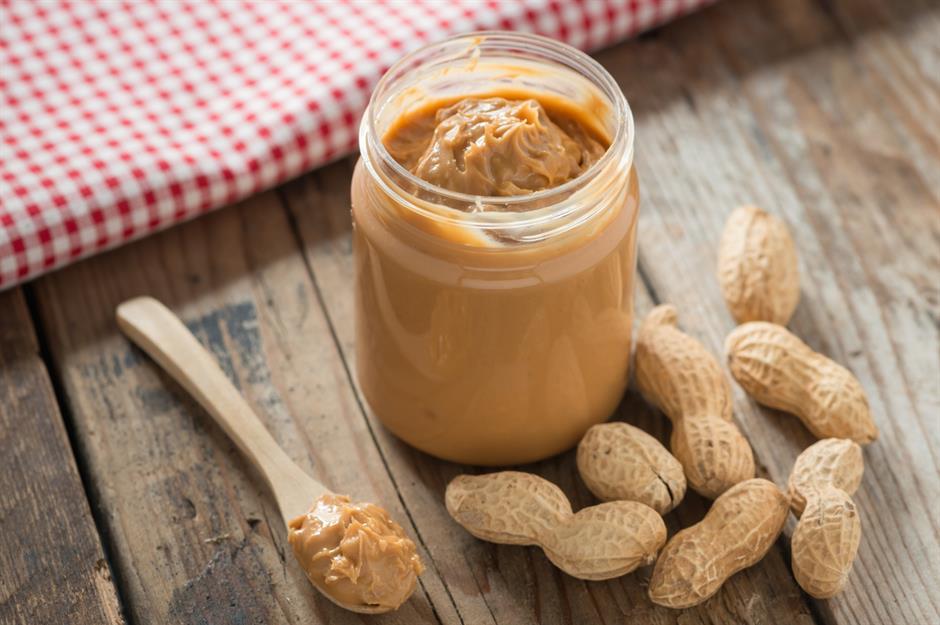
Jars of supermarket-bought peanut butter generally contain hydrogenated oils to keep them fresh. Natural peanut butters often just contain ground nuts and a pinch of salt, so oils from the nuts can start to separate if they get too warm. No matter which type you opt for, it's best to keep your peanut butter in the fridge once it's opened, as this will reduce the risk of mould developing.
Potatoes
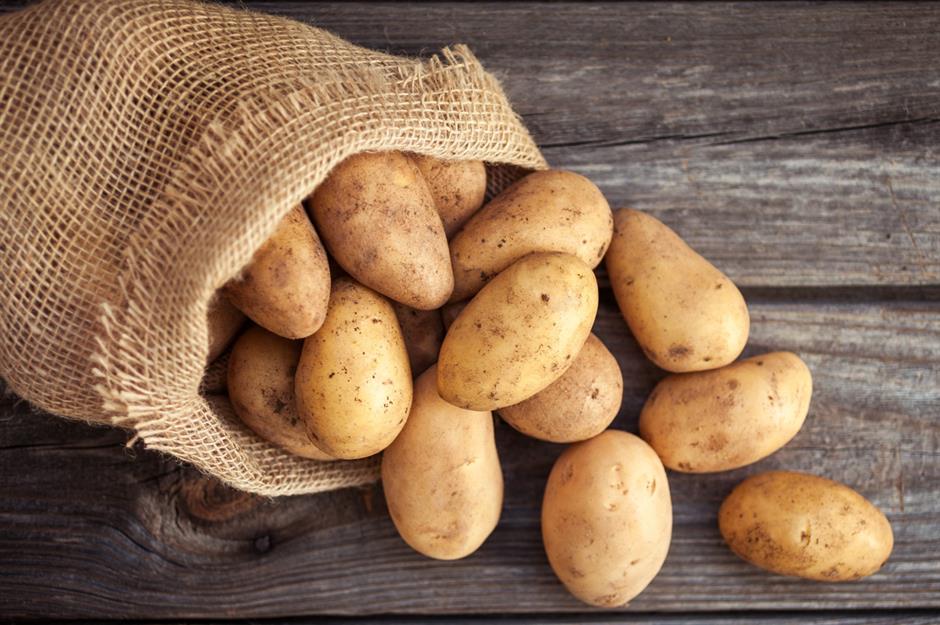
Until recently, experts advised that potatoes should be stored in a cool, dry place, and not in the fridge; it was thought that cooler temperatures caused acrylamide, a chemical substance, to develop faster. However, the advice has now changed – the Food Standards Agency says that storing potatoes in the fridge lengthens their lifespan. Green or sprouted parts of potatoes can contain high levels of natural toxins called glycoalkaloids, so it's important to remove the sprouts and cut off any green or rotten parts before cooking.
Pure maple syrup
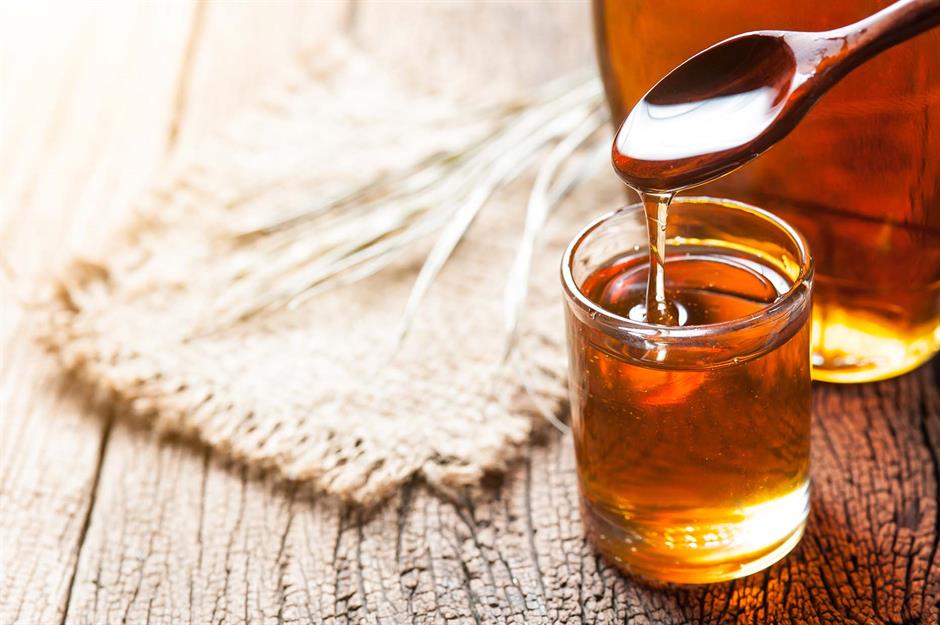
Despite its high sugar content, pure maple syrup will spoil if it's not refrigerated. There are no preservatives in pure maple syrup – so if it's stored at room temperature, it'll develop a layer of mould on the surface over time. If you want to keep it fresh for longer, you're better off keeping it in the fridge.
Red wine

Going against everything you thought you knew about wine, opened bottles of red should be stored in the fridge. Once opened and exposed to oxygen, wine can quickly discolour and lose flavour – but cooler temperatures slow down these processes. Store your bottles upright, and be sure to drink their contents within five days. You might be surprised to learn that some red wines even benefit from being served slightly chilled.
Tortillas
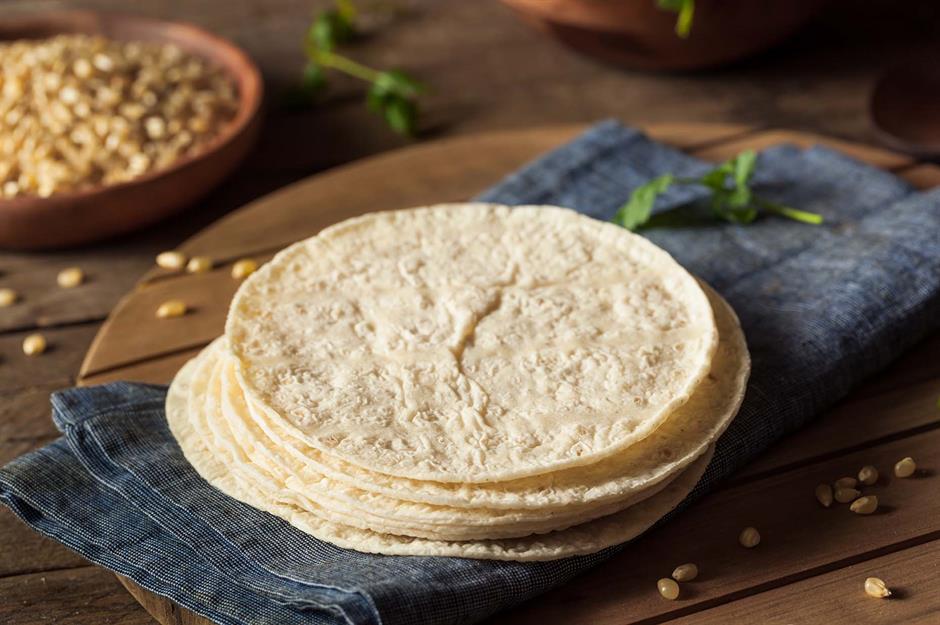
You got them off the shelf, so they'll be fine in the cupboard, right? Wrong! Not only will tortillas last longer in the fridge, but they also won't go mouldy as quickly as they would in a cupboard. Tortilla packs are extremely susceptible to temperature changes, which can cause moisture to build up – leading to mould. When stored in the fridge, corn tortillas can last for up to eight weeks, while flour tortillas can last for up to four weeks. Meanwhile, refrigerated homemade tortillas will be good for seven days.
Wholegrain flour
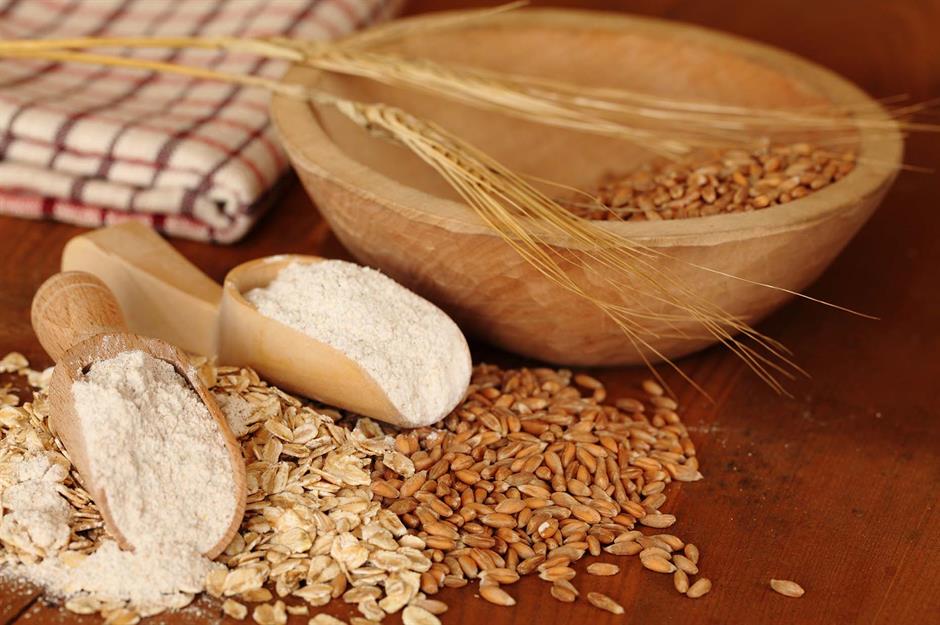
It might sound strange, but wholegrain flour (including spelt, barley and buckwheat flour) benefits greatly from being refrigerated. Wholegrain flour is made from the whole grain, including the hull, which means the flour retains plenty of fibre, vitamins and other health benefits. Refrigerating will help to preserve the flavour, smell and quality of wholegrain flour; meanwhile, in a cupboard, it'll last no longer than three months before turning rancid. Just make sure it's kept in an airtight container before you refrigerate.
Now discover 30 bad kitchen habits you need to stop now
Last updated by Dominique Ayling.
Comments
Be the first to comment
Do you want to comment on this article? You need to be signed in for this feature
Most Popular
Reviews 31 unbelievably sugary cereals from around the world